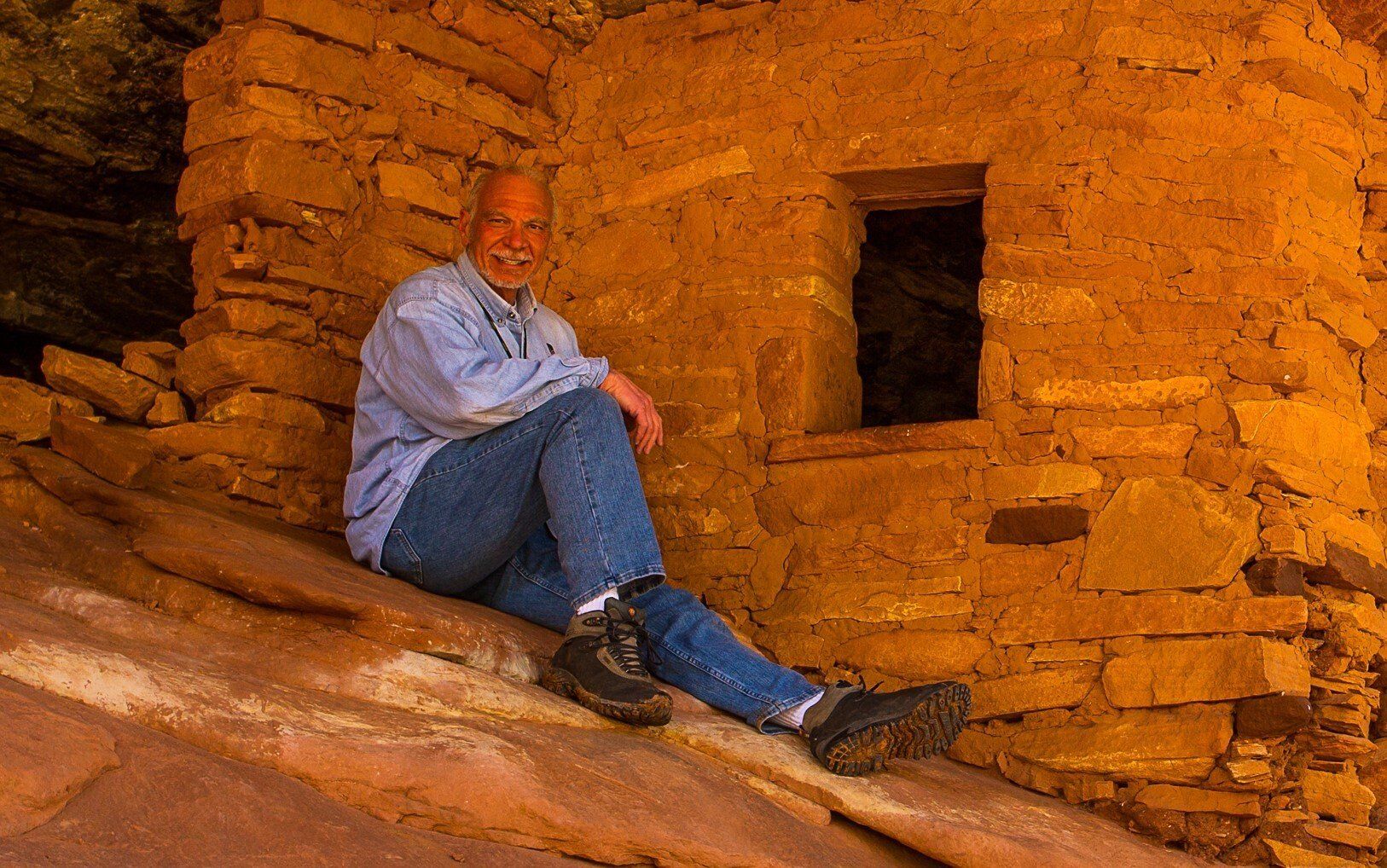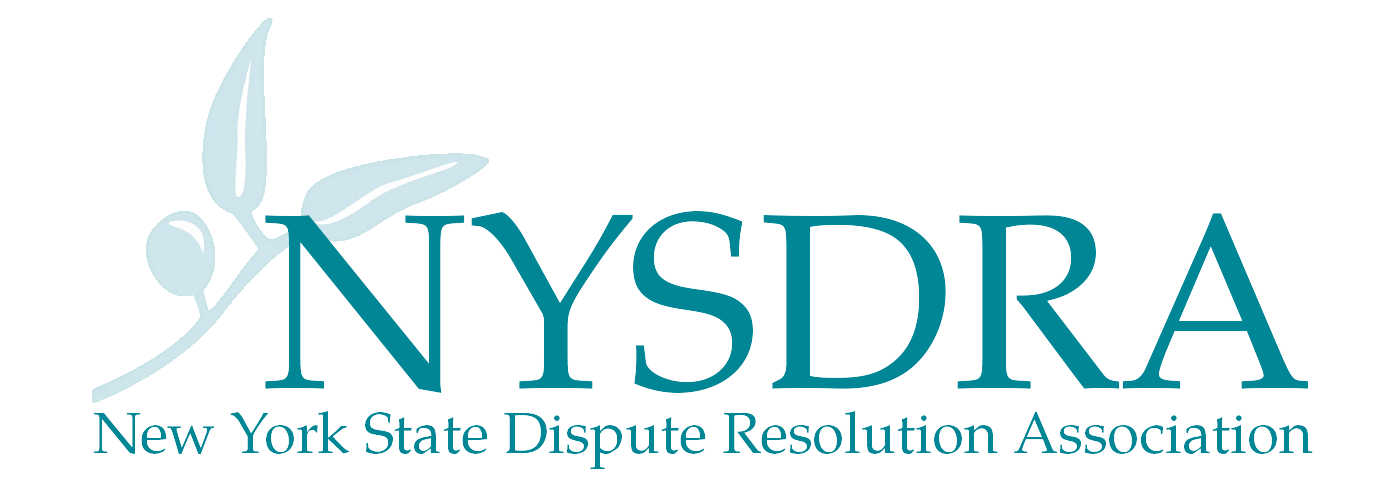An Interview with Frank Liberti
On March 31, 2021, Frank Liberti stepped down as CEO of Center for Dispute Settlement (CDS), the Community Dispute Resolution Center serving Cayuga, Livingston, Monroe, Ontario, Seneca, Steuben, Wayne, and Yates counties.
Frank’s long association with CDS spanned over 25 years during which Frank served in various roles, from volunteer mediator to his most recent leadership role. This is Frank’s second retirement, having previously retired after long and fulling career with the United States Postal Service—where Frank first got connected with mediation through the Postal Service REDRESS Program.
NYSDRA Executive Director Regina Ritcey sat down with Frank in March to talk about his work, the power of mediation, and what comes next. Hear a bit about Frank’s story, the value of being in the right place at the right time—and building on one’s natural gifts and abilities to not only help others, but help transform lives.

Photo c/o Frank Liberti. House on Fire ruins, Mule Canyon, Utah.
Ritcey:
What part of your experience with CDS has been especially meaningful for you?
Liberti: The most exciting aspect of the past four years in this role has been taking this work that we do in the mediation rooms with two people, or maybe four people, and bringing that into the broader community under restorative practice and restorative justice in harm situations. And that’s what I find to be most exciting … and the way that CDS practices under the transformative model, in lieu of a facilitative model of mediation. I see clear, distinct differences in those two models. Working under that transformative model--the premise being that we embrace conflict as an opportunity for personal growth--practicing in that model really gives people self-efficacy. So, taking that work and transitioning it out into the broader community under the umbrella of restorative practices is really what has been most exciting--and I see a huge potential for that to only continue to expand.
Ritcey: How did you first get involved with mediation?
Liberti: Through the Postal Service’s REDRESS Program. I started as a letter carrier. Actually, I started as a chemist. I studied chemistry and math as an undergraduate, then later labor relations on the graduate level, but yes, I started as a chemist. Then, for 14 years I carried mail—oh, that was a great job! Outdoors all the time. I always felt they were paying me to stay in shape. I’d walk to work-I worked in a small village in New York. I was the local union president for most of the time, and then I went into postal management and spent the rest of my career in human resources, and most of that time in labor relations. So then I was working on the other side, but working closely in collaboration with the unions. We were on different sides of issues but I always enjoyed a close working relationship—and I remain a strong union supporter.
Ritcey: How did you get connected with the Center for Dispute Settlement?
Liberti: When the Postal Service in the 90s embraced the REDRESS Program, which was under the transformative mediation model, one of my colleagues coordinated those mediation opportunities, and she was a volunteer mediator with CDS. So I trained in the early-90s as a facilitative mediator with the center, and then in my work with the Postal Service, as a labor relations person, we represented the agency in those EEOC complaints. Through the Postal Service REDRESS Program, I was trained by Baruch Busch in transformative mediation. My predecessor, in my role as CDS Executive Director, was one of the Postal Service trainers, and she trained folks throughout the country in transformative mediation while at the center.
Ritcey: So that was national but out of Rochester, and you just happened to be in Rochester—just the right place at the right time.
Liberti: Yes, that’s right. Right place at the right time.
Ritcey: Frank, you spoke about the importance and potential of transitioning restorative practice and restorative justice into the broader community. I know you’re retiring, but you’re not exactly a retiring person, so where do you see that interest leading you for your next stage?
Liberti: Consulting, I suppose. I’m committed to taking a six-week hiatus to regroup and to reevaluate. I can envision consulting in some ways. If nothing else, promoting what I believe to be the next step in mediation, which is really to promote and introduce people to this transformative approach. The rationale for that, and how it shows itself as a very productive way of doing this work. And it’s evidence based. My introduction to that goes way back to my original career with the Postal Service and that work in the REDRESS Program with mediations that were conducted strictly transformatively. That’s been well researched, over a 15-year period or more, and the results are pretty dramatic. So I see continuing to promote that idea and those concepts and this way of doing restorative work.
There’s as much of a distinction in the way you practice mediation which carries over into the restorative work. Not to get too deep into it, but people who are drawn to this mediation work, you know …we’re helpers. We’re fixers. We want help people, to fix people. It’s the distinction between helping people and supporting people. The analogy would be, you give a fish to a hungry person you feed him for the day. You teach him to fish, you feed him for a lifetime. The concern I have with that is the is the idea that we have to “help” people. It can put you in a deficit-based mindset as opposed to an asset-based mindset, and I think that distinction parallels the distinction between facilitative mediation and facilitative restorative work and transformative mediation and restorative work—where you’re really empowering people looking at their underlying strengths and assets. And that’s what I find so exciting.
Ritcey: Tell us about an experience that has helped shaped the way you approach a dispute.
Liberti: When I didn’t get a settlement. One time, I remember walking out of a mediation that didn’t settle and thinking to myself, “Now, why did I not get a settlement?” After all, as this uninvolved third party, I can see the solution. So I subtly lay it out for the parties, because after all, I’m pretty subtle, pretty persuasive (chuckle). This case involved two young people. It didn’t settle and as I thought about the situation it made me think that maybe that I don’t know what the solution should be, what’s right for them. It made me think about what we tell people about going to mediation with self-determination and it made me rethink what mediation could be. That was right when the Baruch Bush’s The Promise of Mediation came out. I read that and thought, “Yes! That’s exactly what I’m talking about.” It was really a lightning bolt moment.
The last thing I tell myself before I go into a mediation is, “ I trust that the parties know what’s best for them.” And, as a practicing transformative mediator, if you are thinking about a solution … you’ve now strayed from the concept. So that’s a reminder too, because I’m a helper, so when I start to think, “Oh, I can see the solution,” I have to pull myself back in and support the parties-wherever they are. So, that’s it. It was just coincidental that I was in the right place at the right time, and these events coalesced in the mid-90s, and I’ve been enamored with this work for over 25 years.
Ritcey: CDS, like the other CDRCs and most other community-based mediation programs, relies on volunteers. What are three words that describe your mediators or your experience with mediators?
Liberti: Passion for other people. People are drawn to this because they have a passion for it. It’s a way of fulfilling this underlying need that we all have for connection. We have this basic human need for connection-and this is a way of fulfilling it. We have many mediators trained as facilitative mediators. For the past 25 years the agency has been training in the transformative model, but CDS doesn’t insist on it. We appreciate and acknowledge the work our volunteers do and the way they do it. We make the distinction between the two models, not to convert anyone to transformative mediation, but to make the distinction.
I’m an arbitrator too and I like to arbitrate too. But I want people to know what they’re getting in to. And the mediator in any setting, under any model is not making a decision. Now, if you want someone to make a decision, you can arbitrate. If you give me the authority, I’ll make the decision. But I really want to make sure that people know the process that they’re engaged in. So as much as I’m a strong, strong advocate for transformative mediation, if you want me to be the arbitrator, I’m good with that, but it’s a different mindset. But I think for many attorneys having limited exposure to a collaborative approach, they see the roles and process as being adversarial.
Ritcey: What would you say to someone considering mediation?
Liberti: People will often say that if they could have talked it out, they would have! The response to that is that the reality of the situation is that that conversation you have over the backyard fence can go South real quick. In the mediation it’s a different environment, and what we find is when people take the opportunity to have a facilitated discussion with a neutral mediator, when they embrace that opportunity, if nothing else they learn something, or come away with a better understanding of the dispute. And, in most cases—come up with a settlement. The other thing is, you have nothing to lose! You can still continue to take an adversarial process if it didn’t work for you.
Ritcey: Tell us something unique about yourself that would surprise people.
Frank Liberti: I’m an avid amateur wine maker. I got dragged 28 years ago into wine making by my brother-in-law. Coming from a chemistry background that appealed to me. We get ¾ of a ton of California red grapes shipped in each year—and the wine is pretty good. There are three of us now, my brother-in-law, a friend, and me. That's why it’s called Tre Amici.
I’m also a photographer and an amateur glass blower.
Ritcey: Frank, you’re a Renaissance Man.
Liberti: Well, I’m a very amateur glass blower. I love developing a craft that demands and commands your attention. What I like about glass blowing particularly is, you’re working with material that 2,300 degrees—your mind cannot be anywhere else. You have to be solely focused on what you’re doing. And I find that really intriguing.
Ritcey: A bit like mediation.
Liberti: Yes, it is in a way--a skill and an art that requires great focus and attention.
Ritcey: Can you share with us something that is special about your area of New York State?
Liberti: Well, I'm a Rochestarian by birth and by choice, so I might be biased, but Rochester is really a hidden jewel, and Rochester’s High Falls are right in the heart of the city. Really spectacular.
